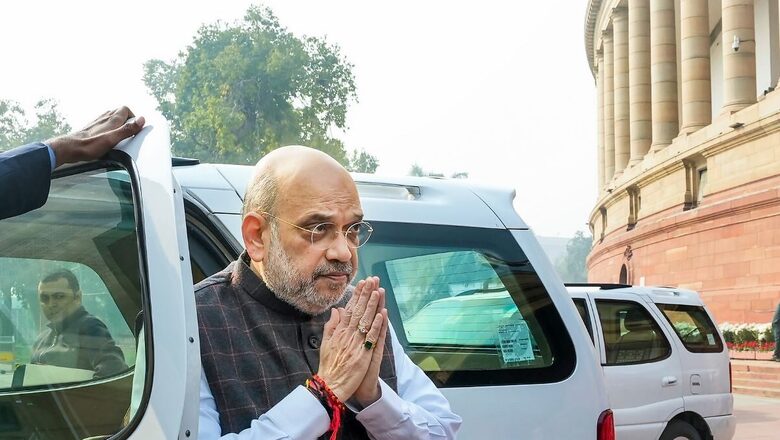
views
Any action that could threaten India’s economic security could be tried as an act of terrorism if the proposed criminal law amendments get Parliament’s nod.
As per the amendments proposed in the Bhartiya Nyay Sanhita (BNS 2), breach of economic security would be treated as an offence on par with acts of terrorism using weapons, arms, or ammunition.
Section 113, sub-section 1 of the amended BNS defines terrorist act as: “Whoever does any act with the intent to threaten or likely to threaten the unity, integrity, sovereignty, security, or economic security of India or with the intent to strike terror or likely to strike terror in the people or any section of the people in India or in any foreign country”.
113(a) subclause (iv) further says: “Damage to the monetary stability of India, by way of production or smuggling or circulation of counterfeit Indian paper currency…” would be seen as a terrorist act.
Earlier, BNS was criticised for loosely defining terrorism by incorporating ‘disturbing public order’ in its purview.
Introducing BNS (2) in Lok Sabha, Home Minister Amit Shah said five new amendments have been brought in the new laws. “All recommendations made by the standing committee (on home affairs) has been considered positively by government and hence a new Bill has been brought in since we didn’t wish to introduce so many amendments to the original Bill,” he clarified when asked by LoP Adhir Ranjan Chowdhury why a new Bill was brought in. The home minister withdrew the earlier bills on criminal law amendment and Speaker Om Birla said 12 hours would be assigned for discussion on the three bills.
Borrowing from the Unlawful Activities Prevention Act, the proposed BNS has included in its purview new age warfare, attack against Indian properties in foreign land, and attempt to harm or assassinate any Indian public functionary.
The use of biological, radioactive, nuclear or otherwise hazardous substance that may lead to death have been added as an act of terror in the new Bill. It also includes in the definition of terror “any damage or destruction of any property in India or in a foreign country used or intended to be used for the defence of India or in connection with any other purposes of the Centre or state governments”.
BNS (2) further states: “Overawes by means of criminal force or the show of criminal force or attempts to do so or causes death of any public functionary or attempts to cause death of any public functionary… kidnapping or does any other act in order to compel the Government of India, any State Government or the Government of a foreign country….commit a terrorist act.”
These definitions were earlier part of the Unlawful Activities (Prevention) Act passed in 2013.
Mental Cruelty
Section 86 of BNS has made a provision for punishment to those causing mental cruelty to women. The original BNS section did not define “cruel treatment”.
The revised BNS Section 86 sub section (a) says: “For the purposes of section 85, “cruelty” means— any wilful conduct which is of such a nature as is likely to drive the woman to commit suicide or to cause grave injury or danger to life, limb or health (whether mental or physical) of the woman.”
Section 85 provides for a three-year jail term for the husband, or members of his family, found guilty of subjecting his wife to cruel treatment.
The Standing Committee’s recommendation on adultery and homosexuality have not been included in the amended criminal laws. The Supreme Court had struck down adultery as a crime in 2018 and also decriminalised homosexual relationships between consenting adults.
Revealing identity of victims of sexual assault from court proceedings without permission has also been made punishable with two years’ imprisonment under Section 73 of the new code.




















Comments
0 comment